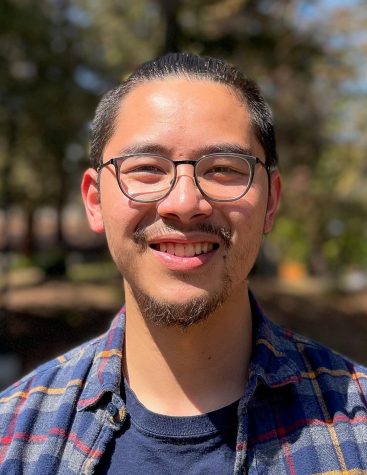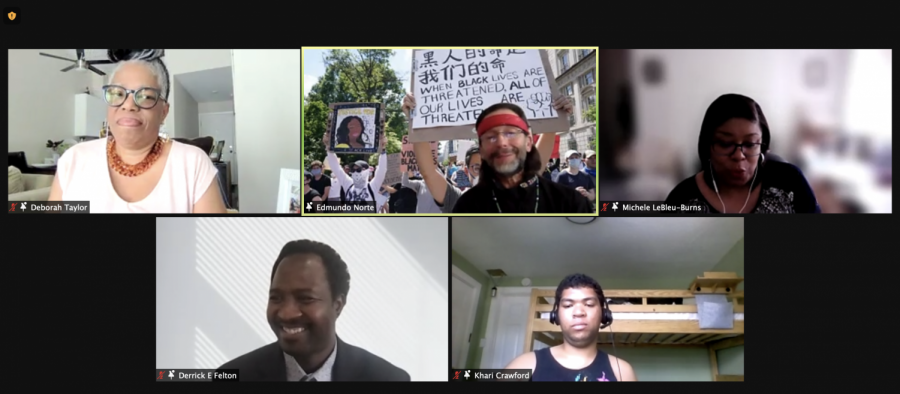De Anza College kicks off multiracial panel series by reflecting on different forms of anti-Blackness
Panelists from “Our Histories, Our Experiences, Our Lives: From Learning to Collective Action – African American Studies” on April 30
Panelists described their experiences with explicit, implicit and internalized anti-Blackness at the De Anza College speaker event “Our Histories, Our Experiences, Our Lives: From Learning to Collective Action” on April 30.
The two-hour conversation featured a five-person panel, ranging from students and professors of different ages and backgrounds, as they discussed the many facets and effects of racism.
Derrick Felton, a psychology professor, said that anticipating stereotypes was a burden.
“I’m a man with three master’s and a veteran, yet every day I still have to prove myself to other people,” Felton said. “I have to be two or three steps better than everybody else, because one small slip and that stereotype of an ‘angry Black man’ comes into play.”
Originally from Mississippi, he explored the difference between explicit and implicit racism.
“In the South, racists will carry their rebel flags and guns, but at least we have an understanding — they don’t like us, and we don’t like them either,” Felton said. “Here, you have folks who could be your neighbor that speak to you everyday, but are looking for ways to get you out of the community.”
Michele LeBleu Burns, Dean of Student Development and EOPS/CARE, said that racism can diminish your identity and self-worth.
“I know so many other people that demonstrate internalized oppression just in terms of how they view the world,” LeBleu-Burns said. “It hurts like the deepest kind of wound when (racism) comes from someone who looks like you or is you.”
Deborah Taylor, the screening and selection coordinator for De Anza’s nursing program, agreed.
“There are those who want to prove to White people that they’re just as good as they are,” said Taylor. “So they take on the language of the oppressor. And sadly, that’s their affirmation to themselves that they have value.”
Nicholas Pope, a returning student, said that recent events opened his eyes to decades of oppression.
“This system has been designed to exclude us and keep us perpetually at the bottom,” Pope said. “Knowing that charges me up and my mission is to help uplift and get us out of the position we’re in.”
This two-hour, five-person panel launched the Intercultural and International Studies Division’s five-part series on race and change. More information on upcoming panels and previous recordings can be found here.

Kevin Vu Nguyen is a returning student journalist and editor at La Voz, formerly serving as Editor-in-Chief. He is a proud alum of both De Anza and Foothill...



